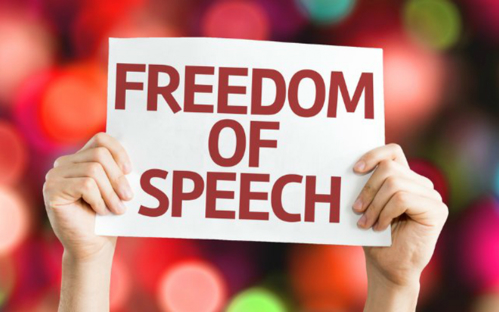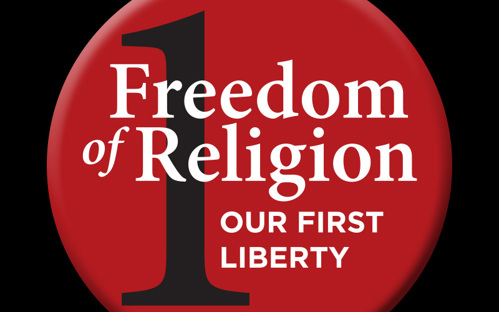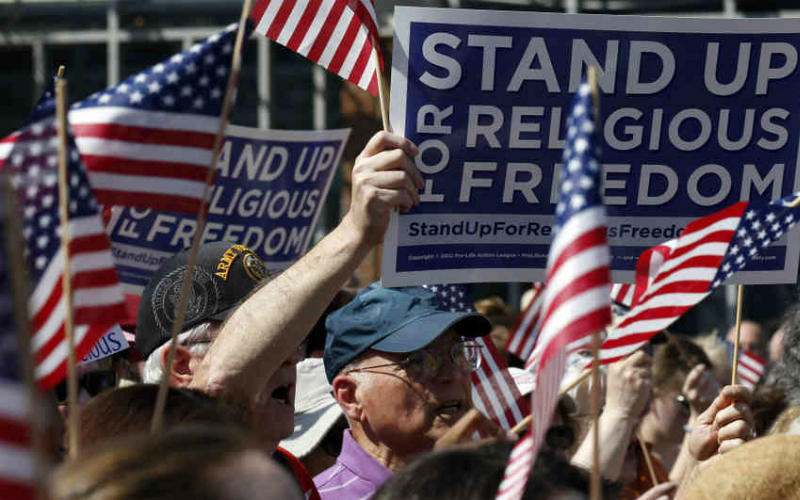Gabriel Olivier wants to challenge a Brandon, Mississippi, ordinance that prohibits religious speech on a public sidewalk near the city's amphitheater.
 A lower court decision bars Olivier from challenging the ordinance. With help from First Liberty Institute and attorneys with the law firm Gibson Dunn, Olivier asked the Supreme Court to challenge the ordinance. Justices agreed Thursday to hear arguments over the issue.
A lower court decision bars Olivier from challenging the ordinance. With help from First Liberty Institute and attorneys with the law firm Gibson Dunn, Olivier asked the Supreme Court to challenge the ordinance. Justices agreed Thursday to hear arguments over the issue.
Attorney Hiram Sasser of First Liberty Institute spoke on how they are fighting for the same thing that Paul was fighting for in the Book of Acts.

"Well, it's a great thing because he was just trying to share the gospel in the public square like Peter and Paul did, and he was arrested just like them. And while Paul had the ability to appeal to Caesar, this court said our client did not have the ability to go seek recourse at the federal courthouse and to vindicate his constitutional rights," says Sasser.
The ordinance restricts Olivier and others to 300 feet away from the people with whom they'd like to share the gospel in Brandon.
By law, the city prohibits partaking in religious speech of any means – oral dialogue, signs, literature, expressive clothing, or one-on-one conversations – on city-owned sidewalks and grassy areas within the park.
"It completely eliminates his ability to be able to share the Gospel, which is the very reason why he wants to go to that public park in Brandon," First Liberty attorney Nate Kellum told AFN in March. "But the more fundamental, the more basic problem is he's not even given an opportunity to challenge this blatantly unconstitutional law in court, and the reason is because an officer unjustly arrested him."
 The city had a designated a “protest” area that was far removed from the crowd that Olivier wanted to approach. Dissatisfied with the area, Olivier tried to speak in the park where he could reach people. Soon after, Brandon police arrested him for violating the ordinance.
The city had a designated a “protest” area that was far removed from the crowd that Olivier wanted to approach. Dissatisfied with the area, Olivier tried to speak in the park where he could reach people. Soon after, Brandon police arrested him for violating the ordinance.
"He just paid a fine, and because of that, the federal district court where he filed his claim decided that he could not pursue his claim, that the state criminal court had already dealt with it and, due to really a very unusual approach to a U.S. Supreme Court decision, decided that he was precluded from even challenging that ordinance," Kellum said.
The district court dismissed his constitutional claim, without even considering the merits of it, relying on Fifth Circuit precedent and a Supreme Court case, Heck v. Humphrey. The case holds that a prisoner could not bring a constitutional claim challenging sentencing and must instead rely on habeas corpus, a recourse only available for prisoners.
However, Olivier was never a prisoner, but now, the Supreme Court is his only recourse.














